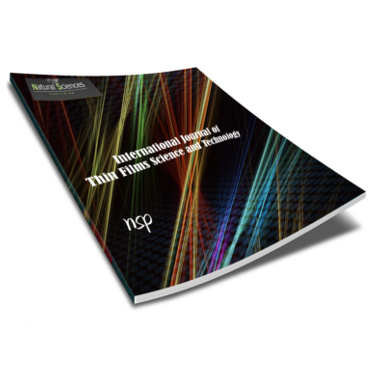International Journal of Thin Film Science and Technology

Abstract
Background: pediatric gait evaluation is considered an important element of children’s physical assessment and reflects their quality of life, health status and physical functions. Purpose: analyze kinematic gait parameters in normal school age children in Capital governorate at Kuwait and compare these findings with normal standard values Methods: Sixty normal healthy children from different schools at capital governorate in Kuwait were selected. Their ages were ranged from 6 to 12 years of both genders with normal Body mass index (BMI). They were assigned into three groups, group (A) 6 -8 years, group (B) 8 -10 years where group (C) 10 -12 years. All children underwent physical evaluations that were carried out for eligibility of selection. Then they scheduled for gait analysis using bioengineering BTS- FREEEMG 300 gait lab. The measured Kinematic gait parameters included temporal (stride time, stance time, swing time, stance phase, swing phase double support phase, velocity, and cadence), and spatial (stride length, step length, step width). Results: there were significant statistical difference between Kuwait children and normal standard values in some parameters as stride time for group A and group B, stance phase for group B, velocity for group A, B, and C, cadence for group C, step length for group A, B, and C and step width for group A and C. Conclusion: It can be concluded that kinematics gait analysis of Kuwait school age children at the capital governorate resembles and consistent with normal standard values ,except some values that differ significantly from the normal standard values.
Recommended Citation
Yacoub Yousef Al-Omar, Rana; Ibrahim ElHadidy, Eman; Naser Alghanim, Munera; and Mahfouz Ali Bahr, Walaa
(2022)
"Kinematic Gait Analysis for School age Children in Capital Governorate at Kuwait,"
International Journal of Thin Film Science and Technology: Vol. 11
:
Iss.
4
, PP -.
Available at:
https://digitalcommons.aaru.edu.jo/ijtfst/vol11/iss4/3

